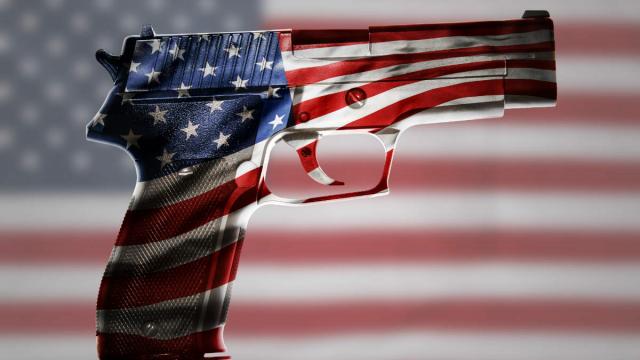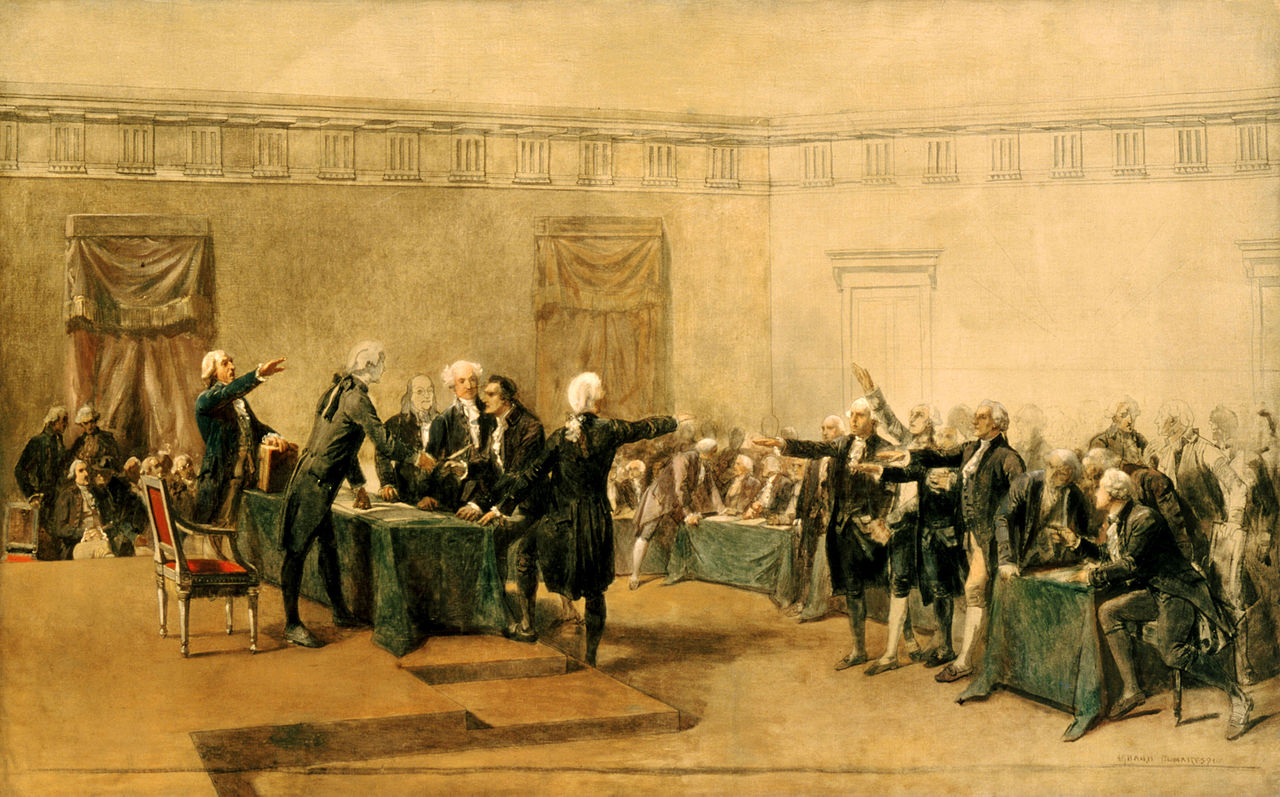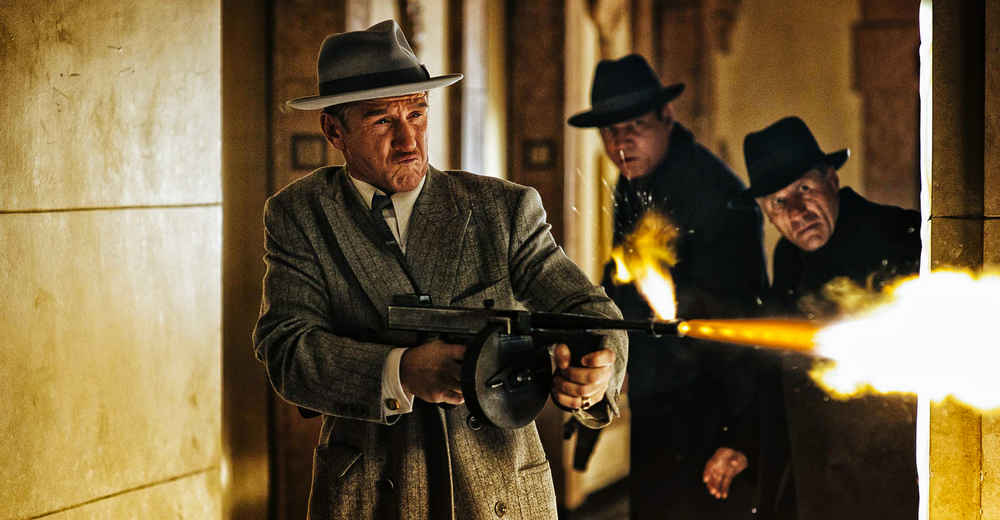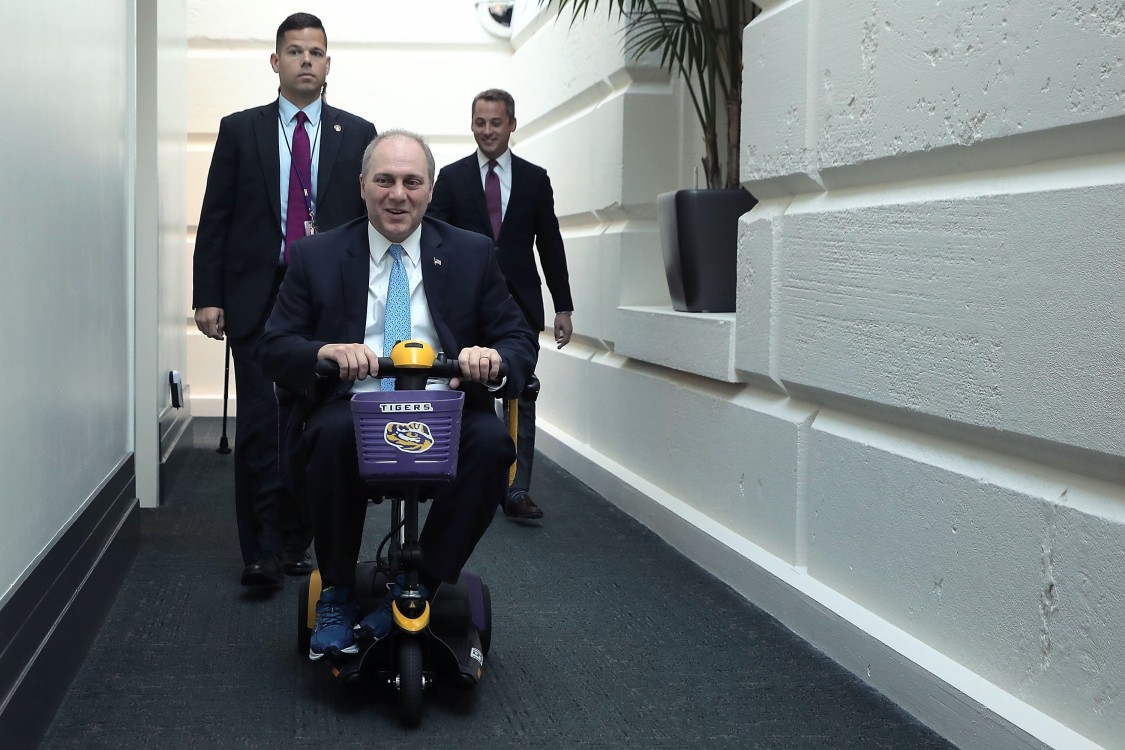
In his first public appearances since being wounded by a deranged gunman earlier this summer, Louisiana Congressman Steve Scalise made it clear he doesn’t support new gun control measures – even invoking the intentions of the Founding Fathers when they wrote the 2nd Amendment.
“Look, the Second Amendment really predates the Bill of Rights," Scalise told NBC’s Meet the Press. "Our Founding Fathers believed strongly in gun rights for citizens. Frankly, they thought it was an assumed right. They didn't put it in the Constitution because they didn't think it would ever be in jeopardy, but ultimately you saw attempts later on to take away gun rights, so they said it's so important we're going to make it one of the ten Bill of Rights, constitutional changes. And so it is a long history in our country to make sure that you protect the right of citizens to bear arms.”
The only problem is that Scalise's interpretation is at odds with the historical record. Only in recent decades has the nation moved toward loosening gun restrictions, and this policy has led to a far greater increase in crimes committed with guns than those used for self-defense.
Gun ownership was necessary, even mandated for defense, in the colonies, where 90 percent of the land was rural and organized militias formed to protect against Indian attacks or slave uprisings. After the American Revolution, under the Articles of Confederation, the government did not have the authority to conscript. The prevailing mood in 1783 was still one in which Americans distrusted a strong central government and feared a standing national army. Following the ratification of the Constitution, the federal government was stronger but the average citizen still had little direct contact with it, and the predilection towards not having a standing army remained.
In 1791, the Bill of Rights was added to the Constitution and included the 2nd Amendment. However, even with the rights guaranteed now under the Constitution, the prevailing attitude was not one of unbridled liberty. In 1793, when western Pennsylvania farmers revolted against a federal tax on whiskey, George Washington led an army to put down the insurrection. Even those who opposed ratification of the Constitution held the view that restrictions on liberty were necessary for a secure and functional state.
Anti-Federalists (those who opposed ratifying the Constitution) and Pennsylvania Congressman William Findley stated at the time of the Whiskey Rebellion, “All men of discretion if they permitted government to be violently opposed even in the execution of an obnoxious law, the same spirit would naturally lead to the destruction of all security and order.”
States implemented gun control measures soon after the ratification of the Constitution, including Louisiana in 1813, one year after becoming a state. Louisiana prohibited concealed weapons. In 1840, a Tennessee law prohibiting concealed weapons was upheld by the state's Supreme Court, which ruled that the state could prohibit concealed weapons, as they were not considered part of an individual’s militia duties.
Even in the Old West, famous for its gunslingers, locales had ordinances restricting gun ownership. The town of Tombstone, Arizona, well publicized in literature and film, had such an ordinance. This ordinance was the spark that led to the notorious shootout at the O.K. Corral after Wyatt Earp and his brothers sought out to disarm a group of cowboys who had entered the town armed.
After America became a majority urban nation and the state militias disbanded, making way for the National Guard, the federal government took action to combat violent crime in cities by, among other ways, restricting access to certain types of guns. The National Firearms Act of 1934 required that certain guns, such as the Thompson sub machine gun – aka Tommy Gun, the iconic gun associated with gangsters such as Al Capone – be registered with the federal government.
The federal government instituted additional restrictions and limitations in the 1960s, and as recently as 1980 a majority of states, including Texas, would not issue concealed carry permits or had strenuous standards to meet before acquiring them. Only Vermont permitted carrying firearms in public. Today, 10 states allow carrying firearms in public with no permit required, no state prohibits concealed weapons, and a majority of states have “right to carry” laws, allowing more individuals to access permits for carrying concealed firearms in public.
The Center for Gun Policy and Research at Johns Hopkins Bloomberg School of Public Health has studied the effects of loosened gun restrictions across the nation. Among their findings is the fact that violent crime actually increased in states after they implemented “right to carry” laws. In Texas, the violent crime rate increased 16 percent and in Arizona it increased 9 percent.
The Center also found that since Arizona’s 2010 law allowed permitless gun carriers, the state has not experienced a higher level of violent crime – but there has been a 27 percent increase in homicides with guns. These statistics correlate with FBI data, which shows that “in 2014, for every justifiable homicide in the United States involving a gun, guns were used in 34 criminal homicides.”
The Center for Gun Policy found that more individuals armed does not correlate with stopping mass shootings. In fact, 84 percent of mass shootings occurred in areas where guns were permitted. The Center found no evidence that mass shooters take into consideration “gun-free zones” before carrying out their violence.
Supporters of loosening gun control restrictions point to the work of economist John R. Lott, Jr., including his book “More Guns Less Crime”. However, subsequent studies by researchers have refuted Lott’s methodology and his conclusion.
According to witnesses of the attempted murder of Steve Scalise and other congressional officials while they were practicing softball on June 14, without the presence of Capitol Police it is likely the gunman would have wounded and killed more people. Instead, James T. Hodkinson of Illinois was shot and killed by Capitol Police.
Exactly what the Framers intended with the 2nd Amendment, or how the 2nd Amendment is applied today, remains open for vigorous debate. But Congressman Scalise’s interpretation is not supported by historical and contemporary evidence.
3 WAYS TO SHOW YOUR SUPPORT
- Log in to post comments















